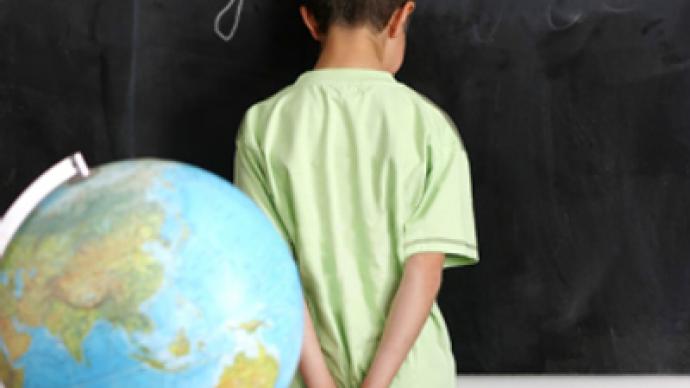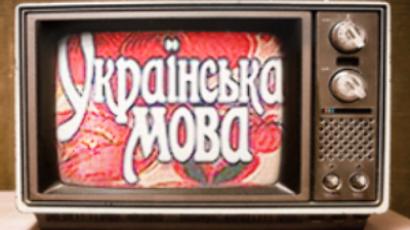Teachers punish kids for reciting Russian poetry

The ‘language policy of the independent Ukraine’ may have gone too far, as two kids have been banned from a school contest for reciting poems in Russian.
In Ukraine’s capital city of Kiev, the senior pupils organisation in school n°22 were holding a contest, in time for St.Valentine’s Day, for which the participants were to prepare a song, a dance and a short performance.
A girl and a boy – Lilya Mikhailova and Sasha Pushka – prepared to perform an extract from ‘Yevgeny Onegin’ by famous Russian poet Aleksandr Pushkin, but their presentation was stopped as the jury asked first the boy to translate the extract into the Ukrainian language – right on the spot. Sasha tried to do so, but was soon stopped, and the jury asked the girl to perform her part, which, of course, was also in Russian.
After the contest was over, the two that were reciting in ‘the wrong language’ were told they were disqualified because they performed in Russian, the Russian Foreign Ministry said, and two more groups of contestants were banned from the competition for the same reason.
The Russian Foreign Ministry has already reacted to an incident that has recently taken place in one of the schools in Ukraine’s capital Kiev, calling it ‘tragic and comic’. It also puts to question what would happen if those same contestants dared to perform an extract from Shakespeare’s ‘Hamlet’ in English – would they be also banned for reciting it in ‘the wrong language’?
The Ministry wonders why the contest organisers were so much concerned about preserving the national identity that they went as far as banning children from reciting Russian poetry, instead of drawing attention to the fact that the whole contest was part of a celebration of St. Valentine’s Day – a holiday that has nothing to do with the country’s culture or history altogether?
Language policy – or language police?
Nikolay Zakrevsky, Editor-In-Chief of the “Kievskiye Vedomosti” newspaper has called the latest incident ‘a bitter fruit of the independent Ukraine’s language policy’. According to him, the desire of the authorities to ‘ukrainify’ all the spheres in the country and to force out the Russian language from social, political and cultural life in Ukraine has brought rather sad results. The number of schools in Ukraine where teaching is performed in Russian was dramatically reduced. In Kiev, there are only 2 schools of this kind left out of 452.
More than 80 % of schools in the country on the whole switched to Ukrainian after the break-up of the Soviet Union. As a result, the Russian-speaking people have almost no chance to educate their children in Russian. Indeed, those who grew up in Soviet times find it difficult to fill in forms in government offices or compete for jobs.
With Viktor Yushchenko coming to power the Ukrainian authorities started ‘a fight’ on the Russian language in the country. The cinemas are allowed to show movies only translated into Ukrainian, and there are plans to ban teaching university students in Russian.
Around half of the country of 48 million speaks Russian. The share of Russian population in the country is estimated as no less than 22 per cent.













